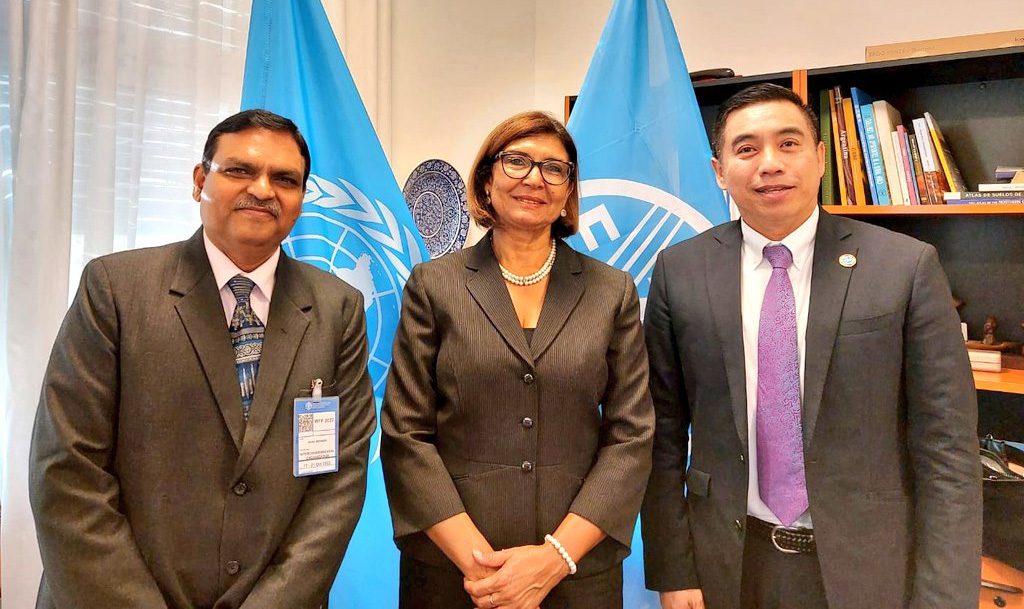Meenesh Shah, Chairman, National Dairy Development Board (NDDB) presented India’s smallholder dairying system to the global experts and shared experiences of using innovation and digitisation for dairy development at the Science & Innovation Forum 2022 organised by the Food and Agriculture Organization (FAO) of the United Nations in Rome, Italy.
On the sidelines of World Food Forum, Chairman, NDDB met FAO’s Deputy Director-Generals Ms Beth Bechdol and Ms Maria Helena Semedo and Director, Animal Production and Health Division (NSA), Thanawa Tiensin & discussed the Indian smallholder farming system, sustainable livestock production systems and innovations.
During the meetings, the opportunities for working together in the area of dairy development were discussed and Shah also proposed jointly organising an international symposium as part of G20 presidency of India, reads a release from the NDDB.
Speaking in the session titled ‘Harnessing science and innovation fo sustainable livestock sector transformation’, Shah spoke on ‘Technological innovation in support of small-scale dairy producers in India’ and elaborated on India’s transformational journey from milk deficiency to becoming the world’s largest milk producer.
NDDB Chairman said that the focus is on digital ecosystems like Information Network for Animal Productivity & Health (INAPH), the national database in which over 230 million animals are registered & National Digital Livestock Mission (NDLM) having components like traceability, disease surveillance, and control programmes.
The manure (cattle dung) management initiatives being undertaken by NDDB with partner organisations have proven to be quite successful by way of providing cooking gas to meet the household needs, income from sale of bio-slurry, solid and liquid organic fertilisers improving soil fertility and at the same time reducing the GreenHouse Gas emissions. This initiative is also being furthered by setting up large scale biogas plants which would meet the energy needs of the dairy plants, Shah stressed.
During the panel discussion, Chairman, NDDB conveyed that there are ample opportunities of innovation in the dairy sector from improving productivity of milch animals to improved quality of milk & milk products & value addition which will benefit our small and marginal dairy farmers as well as consumers.
Shah said that time has come to take the successes of laboratories to the field and improve operational efficiency & reducing impact of dairying on the environment for which such cross-learning experiences and sharing platforms would be important for implementing best practices across the globe.
Several experts including Thanawat Tiensin, Director, Animal Production and Health Division, FAO and Ms Chandapiwa Marobela-Raborokgwe, Director, National Veterinary Laboratory, Botswana, among others attended the event.
